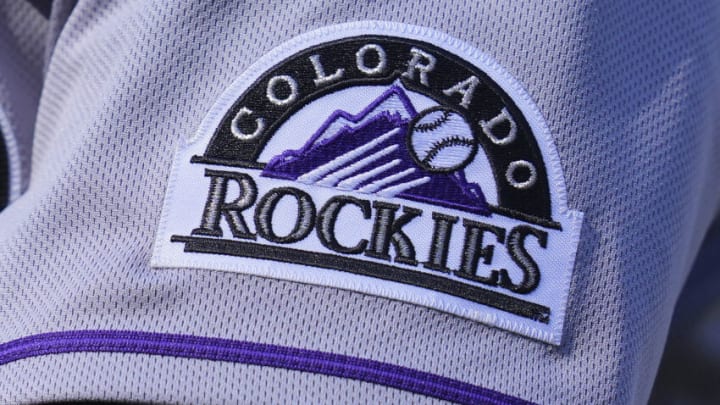As we approach the 2023 season and the 30th in the Colorado Rockies existence, let’s look back on the franchise’s first-ever year and how it panned out. Who were the first players to wear purple and black? Who were the best players? How did they perform?
A look back at how the Colorado Rockies began their existence in 1993
After various attempts over several decades, in 1993, the city of Denver, state of Colorado, and Rocky Mountain region finally landed its own MLB team, the Colorado Rockies. They would decide on the iconic purple and black colors that we’ve grown accustomed to this day and settle on playing in the now extinct “Old” Mile High Stadium. Placed in the appropriately fitting National League West, where in the next 30 years up to today the organization has had its highs, lows, and unfortunately, is still missing the ever-coveted World Series championship as well as its first-ever division title.
Few players are ever able to say that they were the first to ever play for a Major League club. These men have that privilege.
The 1993 Colorado Rockies Opening Day lineup was as follows:
- C – Joe Girardi
- 1B – Andres Galarraga
- 2B – Eric Young Sr.
- 3B – Charlie Hayes
- SS – Freddie Benavides
- LF – Jerald Clark
- CF – Alex Cook
- RF – Dante Bichette
- SP – David Nied
A 25-year-old Vinny Castilla would end up manning more games than Benavides at shortstop over the course of the season. Of course, he would continue to be a key player for nine years in Colorado.
This 1993 team would unfortunately not play winning baseball in their inaugural season, going 67-95 and finishing 37 games behind the NL West-winning Atlanta Braves. It would not go without some tremendous individual performances throughout the course of the season.
Andres Galarraga was an absolute tank for this lineup, taking home the league’s batting title with a monumental .370 batting average. Amassing 174 hits in just 120 games, Galarraga also jacked 22 homers, drove in 98, and led the team with a towering 1.005 OPS.
Charlie Hayes would provide plenty of firepower next to Galarraga. Leading the team in hits (175) and the entire league in doubles (45). Hitting .305 with 25 home runs and 98 RBI of his own, Hayes was second on the team in OPS with a more than respectable .876.
Perhaps the most well-known name in this lineup, Dante Bichette would also have a great season on an overall underwhelming team record-wise. He would also hit above .300 (.310), lead the team in runs scored (93), finishing third on the team in OPS, just under the .876 (.874) posted by Hayes.
Eric Young Sr. and Alex Cole would combine for 72 stolen bases, with 42 and 30, respectfully. Eric Young Sr. proved to be a low-key catalyst for the club with a sneaky 82 runs scored.
Pitching staff
While the lineup featured premier bats and numbers to back them up, the first year saw this pitching staff struggle a bit. Okay not just a bit, but a lot. The Rockies pitching staff would finish dead last in the National League in multiple team stat categories, including ERA (5.41), hits allowed, runs allowed, home runs allowed, and walks allowed. A formula that in no way could churn out any success. The subpar staff would also produce a staggering 10.5 hits per nine innings.
What it meant
The long-anticipated wait for a Major League Baseball team in Denver was indeed much anticipated, as their inaugural season would set a home attendance record for any Major League Baseball club ever in history, falling just short of 4.5 million for the season. That is a record still yet to be broken.
The history of the Colorado Rockies has been a story of one step forward, two steps back. With little in the trophy case, however, that never necessarily means the last 30 years have gone without moments. The inaugural season, 1993, among all moments in the club’s history, however, can be viewed as an all-time moment regardless of record.
Giving a territory of people a tribe to follow, colors to dawn, and an identity to fall under that they were clamoring for decades. The people of Colorado got what they wanted in 1993, and the Rockies will always be their baby.
